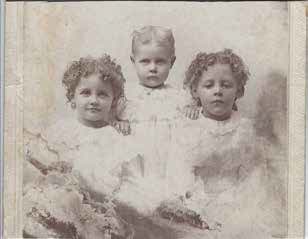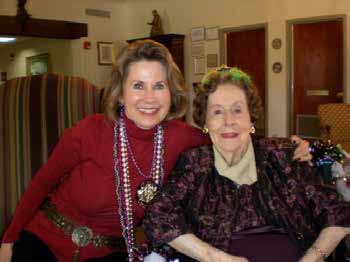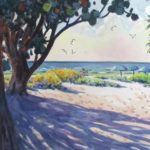Naples couple spurs global research on possible “Alzheimer’s Germ”

Rainey and Dr. Leslie Norins married in 1994, are business and life partners for 29 years” and residents together in Naples since 1990.
“We’ve hardly ever met a person in Naples or elsewhere who didn’t have a family member, relative or friend affected by Alzheimer’s disease directly or indirectly,” says Rainey Norins, vice-president of Alzheimer’s GermQuest, Inc.
The public benefit corporation was started by her and her husband, Dr. Leslie Norins, company president, as an effort to increase research on the role of microbes in causation of Alzheimer’s dementia.
Rainey’s family tree shows the illness struck hard. “My grandmother and her two sisters all died from ‘dementia’, which in their era was the umbrella label which included Alzheimer’s. And my mother developed it at age 88 and passed away five years later,” she says. “With that history, who wouldn’t be interested in accelerating a cure for it?”.
Leslie’s focus on Alzheimer’s came from a different direction. He was just winding down a 45-year career as a successful publisher of medical newsletters for healthcare professionals. (Rainey was his business partner as well as spouse).
Hearing frequent mentions of the affliction in Naples he decided to update himself on the medical literature about it.

“Rainey’s grandmother, Lillian Mayhall (1st child on the left) and her two sisters in 1894. These siblings all died of dementia in their 90’s. It likely was Alzheimer’s.
He had been a medical researcher early in his career, so he made a two-year deep dive into bioscience journals. To his surprise, he found there had been little to help patients discovered in the five decades since he graduated from Duke Medical School.
“Back then there was nothing, and it’s basically still the same. Even the cause of Alzheimer’s remains unknown,” he says.
However, among the numerous research reports he reviewed, he was struck by the fact there were some aspects of Alzheimer’s which resembled those seen in unusual infections, like TB, leprosy, and hepatitis.
“I’m not talking about typical infections, like the common cold or the flu”, he emphasizes.
He wrote a white paper presenting the clues, “It’s Time to Find the Alzheimer’s Germ”, and published it on a website they established, www.ALZgerm.org.
Ever since Dr. Alois Alzheimer first described the disease in 1906, most research effort and billions of dollars of research grants had gone into studies of the peculiar amyloid plaques and tau tangles found in the brains of stricken patients. Only a few scientists and paltry monies had focused on infectious agents.
“We felt that since a cure for Alzheimer’s was desperately needed, it was time to encourage researchers to check out those hints an unusual microbe might be the villain,” Leslie says. “But our years in medical publishing had taught us an idea not only has to be good, it has to capture the attention of its intended audience.

My mother, Ida Hammatt, was diagnosed with Alzheimer’s at 88 years old. This photo is at her Memory Care Center where she was crowned Queen of Mardi Grass, she died a few months later.
So we came up with our ‘$1 Million Challenge Award’, for the scientist who provides persuasive evidence for an infectious agent causing Alzheimer’s disease.”
The deadline for entries is December 2020.Since their project spotlighting Alzheimer’s microbes was announced in January 2018, both science and lay media showed interest;
NPR did a story, and a German TV network flew a video crew to Naples to interview them.
The Naples Daily News and The Wall Street Journal covered it.
The Norins’ have also presented the project at major Alzheimer’s and infectious diseases conferences, including one in Switzerland. But they feel the most promising result since they began is that the NIH, the nation’s biggest funder of medical research, recently deemed Alzheimer’s infectious agents a “high priority” topic, and will allocate millions of dollars to new research grants.
“Many people share the credit for this, but no doubt our activities played an important role, Leslie said.



Leave a Reply
Want to join the discussion?Feel free to contribute!